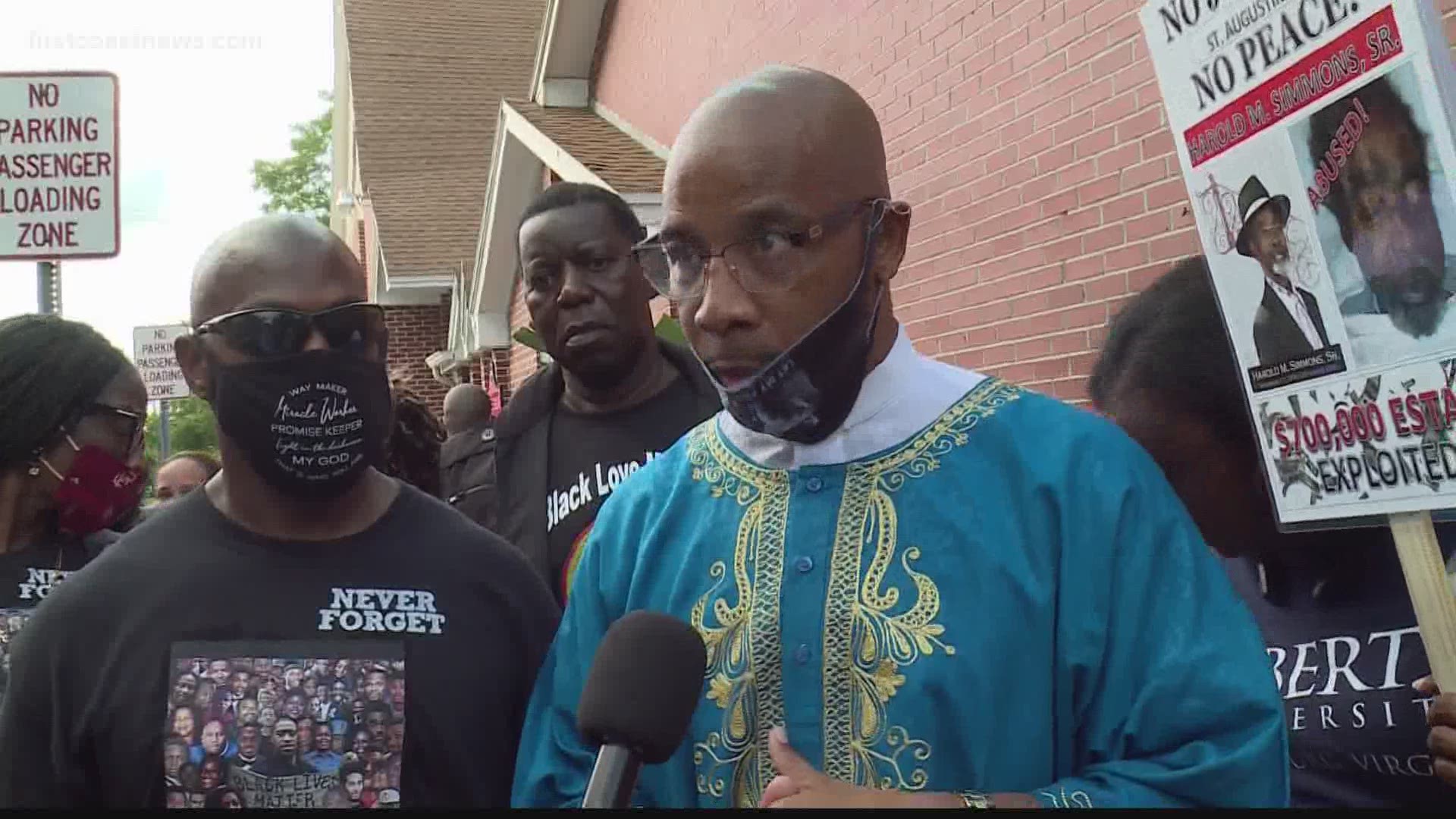ST. AUGUSTINE, Fla. — “You meet force with force,” was the message Rev. Ron Rawls said he was trying to send Sunday at a rally in St. Augustine. Rawls, pastor at St. Paul A.M.E. Church in the St. Augustine’s historic Lincolnville neighborhood, was among hundreds of protestors demanding that the city remove monuments to slavery and the Confederacy.
“We’re not concerned with changing hatred,” he said. “The message that we want to send is that hatred better be prepared to suffer the consequences.”
Rawls told First Coast News he’s also demanding that St. Augustine Police wear body cameras, that the department create a formal process to ensure hiring of minorities, and that the city restore an ‘accountability’ group he said had faltered, that had been established to ensure that the city staff be racially proportionate.
Although the protest was peaceful, some of the rhetoric suggested vengeance.
“One, we threaten their safety, and two, we threaten their money,” Rawls said, without specifying exactly whom he was threatening.
The rally began with a march from St. Paul A.M.E. Church to the Plaza de la Constitucion in downtown St. Augustine, the site of a former slave market and a cenotaph honoring several Confederate Civil War soldiers. As demonstrators addressed the crowd, a small group of counter-protestors stood nearby. One of them, Jamie Parham of Hastings, contended that the popular “Black Lives Matter” slogan being chanted at many protests is racially divisive, reasoning that he doesn’t consider any race better than another.
“None of us believe that other people’s lives don’t matter, none of us believe that black lives don’t matter - that’s garbage,” Parham said. “So that’s a whole false narrative by itself.”
Parham also bristled at the demands to remove the Civil War soldiers’ monument, explaining that the obelisk had been erected by the widows of four soldiers and that when the war ended and the country reunited, all Civil War soldiers became officially considered United States veterans.
But protestor Earl Johnson, Jr., who said his father had been an attorney for Dr. Martin Luther King, disagreed.
“We have to first admit that these monuments are homages of hate,” Johnson began, “that there’s nothing to do about history - it’s a history of hate. It’s not a choice for black people as to whether it’s history or hate, it’s a history of hate.”
Asked whether he thought violence perpetrated by some protestors recently in other cities might undermine the cause they’re trying to support, Johnson said “I’ve seen violence against the protestors. That’s what I’ve seen out there.”
As the event concluded with a march through the city and back to St. Paul A.M.E. Church, Rawls contrasted his favored approach with that of Dr. King five decades earlier, much of which had played out in the nation’s oldest city.
“No longer will we turn the other cheek; there will be an eye for an eye, a tooth for a tooth.”
St. Augustine Police told First Coast News there were no arrests related to Sunday’s rally.

